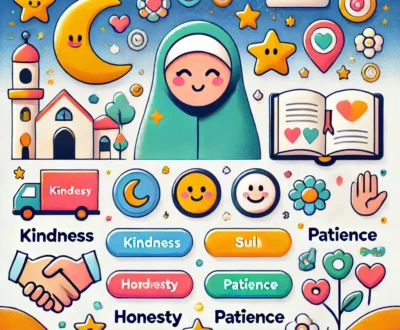Unlocking Holistic Wellness: An Islamic Approach to Mental Health, Physical Wellness, and Spiritual Well-being
- October 25, 2024
- Yaraak Insights
Introduction
In a world that feels increasingly overwhelming, finding balance across mind, body, and spirit is essential. For Muslims seeking wellness through an Islamic lens, there’s a growing demand for resources that offer faith-centered guidance on mental health, physical wellness, and spiritual well-being. Imagine a digital platform where you can nurture these three dimensions while staying aligned with Islamic principles—a space that integrates counseling, mindfulness exercises, and self-care routines tailored to meet the unique needs of Muslims today.
This article explores what a comprehensive Islamic wellness platform might entail. We’ll look at the importance of mental, physical, and spiritual health in Islam, practical ways to maintain each, and how such a resource could serve as a powerful tool for balanced living. By connecting with Islam’s timeless wisdom, Muslims can find a path to a fulfilling, healthy life grounded in their faith.
The Importance of Holistic Wellness in Islam
Islam teaches a balanced approach to health, viewing wellness as harmony between physical, mental, and spiritual dimensions. Unlike approaches that focus on just one aspect, Islam advocates for a comprehensive view that nurtures the whole self. Achieving this balance helps Muslims lead lives full of peace, productivity, and purpose.
Prophet Muhammad (PBUH) consistently advised moderation, cautioning against both excess and deprivation. His teachings emphasize that well-being is best achieved through a moderate, steady path—a principle that serves as the foundation for Islamic wellness. For Muslims today, this balanced approach offers a way to navigate life’s challenges without compromising any aspect of their health or faith.
Mental Health from an Islamic Perspective
Understanding Mental Health in Islam
Islam has long acknowledged the importance of mental well-being. The Quran and Hadith contain guidance on managing emotions, stress, and grief, underscoring values like patience, resilience, and forgiveness—all of which contribute to mental peace. However, mental health issues are still stigmatized in some communities, leaving individuals feeling isolated or misunderstood.
An Islamic wellness platform could help break down these barriers by normalizing mental health care. Imagine accessing counseling services that integrate Islamic principles—where you could discuss struggles with therapists who understand both modern psychology and Islamic values. Such a resource would allow Muslims to seek mental health support without feeling disconnected from their faith.
Islamic Counseling and Therapy
An Islamic counseling approach combines evidence-based psychology with Islamic values, respecting religious beliefs while drawing from the Quran, Sunnah, and Islamic history. For instance, the concept of tawakkul (trust in God) encourages Muslims to release worries over things beyond their control, placing trust in Allah’s plan. This spiritual foundation, when integrated with counseling, offers a unique resilience tool that is not commonly emphasized in secular approaches.
Through this platform, users could access guided reflections on tawakkul and other spiritual principles that align with modern therapeutic practices—creating a culturally and spiritually aligned path to mental wellness.
Physical Wellness in Islam: Taking Care of the Body
Exercise and Physical Health in Islamic Tradition
Islam emphasizes the importance of caring for the body as a trust from Allah. Physical activity not only improves physical health but also boosts mental clarity and resilience. Prophet Muhammad (PBUH) encouraged activities like swimming, archery, and horseback riding, and he modeled moderation in diet—promoting balanced, healthy eating habits.
An Islamic wellness platform could offer workout routines inspired by Sunnah, meal planning tips, and health advice that respects Islamic dietary guidelines. Imagine a fitness section featuring videos on low-impact exercises, stretches that complement Salah, or meal plans designed to help users maintain halal and nutritious diets.
Nutrition and Fasting for Better Health
Healthy nutrition is central in Islam, with guidance from the Prophet (PBUH) on avoiding overindulgence and practicing mindful eating. The concept of intermittent fasting in modern wellness mirrors the Islamic practice of fasting during Ramadan, which offers both physical and spiritual benefits.
This platform could provide detailed guides on mindful eating, recipes inspired by Sunnah, and fasting routines that go beyond Ramadan, helping users maintain a balanced diet while honoring Islamic values.
Spiritual Wellness: Nurturing the Soul
Spiritual Connection Through Worship and Mindfulness
In Islam, worship and remembrance of Allah are central to spiritual health. Practices like Salah (prayer) and Dhikr (remembrance) ground Muslims, helping them connect with Allah and achieve inner peace. Islamic mindfulness, known as muraqabah, encourages self-awareness and reflection, aligning with both mental and spiritual health goals.
Imagine a platform offering guided Dhikr sessions, reflections on Allah’s names, and short muraqabah exercises tailored to bring mindfulness into everyday life. These tools would allow Muslims to deepen their connection to Allah in a structured, accessible way.
Tazkiyah (Purification of the Soul)
Tazkiyah, or self-purification, involves purifying one’s heart from negative traits and cultivating virtues like patience, gratitude, and humility. This inner work aligns with psychological well-being and personal growth. A digital wellness resource could provide daily tazkiyah prompts, journaling exercises, and guidance on character development, all rooted in Islamic values.
For instance, users might start their day with a prompt to reflect on a specific virtue, setting an intention for personal growth that day. This kind of spiritual practice is unique to Islamic wellness and offers an approach to self-care that emphasizes inner refinement over outward achievement.
Practical Self-Care Practices in Islam
Setting Boundaries and Managing Time for Self-Care
Islam teaches the importance of setting boundaries and managing time wisely. Prophet Muhammad (PBUH) modeled a balanced life, dedicating time to worship, family, community, and self-care. A platform could offer practical tools for time management inspired by the Prophet’s example, helping users allocate time for work, worship, family, and personal reflection.
Self-Care Through Islamic Mindfulness Exercises
Mindfulness practices tailored to Muslims could help manage daily stressors while keeping faith at the center. The platform might include exercises like deep breathing, grounding techniques, and body scans integrated with Islamic reminders, creating a uniquely spiritual form of relaxation.
How an Islamic Digital Wellness Platform Can Serve the Ummah
Providing Access to Faith-Based Mental Health Support
A digital wellness platform could serve Muslims worldwide by providing access to faith-based mental health resources. Online counseling, mindfulness exercises, and self-care guides rooted in Islamic values would empower Muslims to seek balanced wellness without compromising their beliefs.
Building a Community of Wellness
This platform could also foster a sense of community, offering forums or group sessions where Muslims support each other on their wellness journeys. Imagine virtual spaces for discussing mental health, fitness, and spirituality, creating a support system that connects Muslims globally.
Integrating Modern Wellness with Traditional Islamic Teachings
By merging modern wellness practices with traditional Islamic wisdom, this platform could offer a balanced, faith-centered approach to health that is unique and meaningful. This integration speaks directly to the hearts of Muslims seeking a holistic path to well-being.
Frequently Asked Questions
- What is Islamic counseling, and how does it differ from conventional counseling?
Islamic counseling integrates the values and teachings of Islam with standard psychological practices, allowing Muslims to receive mental health support that respects and incorporates their faith. - How can physical wellness be maintained according to Islamic principles?
Physical wellness in Islam includes regular exercise, balanced nutrition, and moderation. Prophet Muhammad (PBUH) encouraged physical activity and advocated for healthy, moderate eating habits. - How can mindfulness be practiced in an Islamic way?
Islamic mindfulness, or muraqabah, involves reflecting on Allah’s presence and practicing self-awareness. Exercises like Dhikr (remembrance) and reflection on the Quran cultivate mindfulness. - What are some practical self-care tips based on Islamic teachings?
Setting boundaries, managing time, and prioritizing Salah are effective self-care tips in Islam. Mindfulness and gratitude practices also support well-being. - Why is an Islamic digital wellness platform needed?
An Islamic wellness platform provides resources tailored to Muslim beliefs, integrating faith with modern wellness practices. It’s a valuable resource for Muslims seeking balanced, faith-aligned health guidance.
Conclusion
An Islamic digital wellness platform offers a holistic approach to health, addressing mental, physical, and spiritual needs through the lens of Islamic teachings. By integrating mental clarity, physical vitality, and spiritual peace, this platform empowers Muslims to lead lives of resilience, balance, and purpose, grounded in the timeless wisdom of their faith. Embracing such a resource enables Muslims to cultivate harmony in mind, body, and soul—an invaluable journey toward a fulfilling, resilient life.
Yaraak’s team of specialists combines innovative ideas with extensive experience to deliver exceptional results for Islamic institutions. We focus on building sustainable, meaningful relationships with your community by authentically engaging them through social media. By aligning each strategy with Islamic values, Yaraak helps institutions connect deeply with their audiences, fostering long-term loyalty and impact across digital platforms.
About us and this blog
We are a dedicated digital marketing agency, crafting impactful content strategies tailored to the unique missions of Islamic institutions.
Request a free quote
We offer professional SEO services that help Islamic institutions increase their organic search score drastically in order to compete for the highest rankings even when it comes to highly competitive keywords.
Subscribe to our newsletter!
More from our blog
See all postsRecent Posts
- Virtual Sadaqah Jar: 4 Simple Steps to Start Your Journey of Consistent Giving November 18, 2024
- 10 Powerful Ways Islamic Marriage Counseling Can Transform Your Relationship for the Better November 16, 2024
- Halal Business Directory: The Ultimate Marketplace for Ethical Shariah-Compliant Shopping (2024) November 14, 2024







